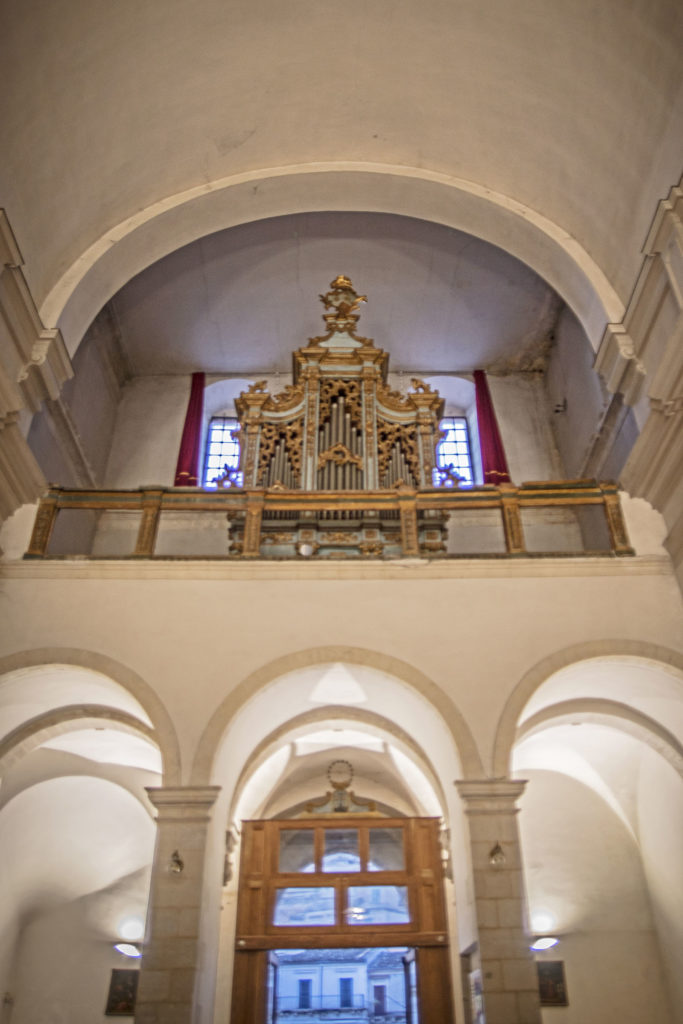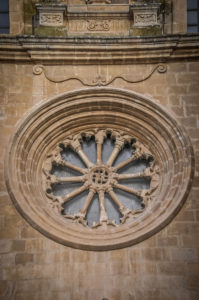 Songs and notes accompany the celebrations as they did centuries ago.
Songs and notes accompany the celebrations as they did centuries ago.
The organ is made of wood, small in size, and placed above the entrance. Made in the second half of the 18th century, it is one of the few still working.
The music of those who still know how to play the instrument enchants and accompanies the worshippers as they experience the moment of prayer more intensely, just like in the past.
Different materials, different techniques!
In order to paint on a canvas, panel or wall, an artist must master every technique. Painting on canvas means using a soft media with a fairly smooth surface.
Panels, like the one of St. Albert, are hard, made of wood and very irregular, and can have higher and lower sections. Finally, in order to fresco a wall, an artist must lay out an even base to achieve a smooth surface on which to place the colour.
For any painting to be successful, an artist must, therefore, have excellent knowledge of the technique and materials.
 The church of Carmine is an example of medieval architecture where the central rose window is still intact.
The church of Carmine is an example of medieval architecture where the central rose window is still intact.
The only one of its kind, it has a very unusual decoration.
Instead of the usual floral elements, the stonemason created mini-columns surmounted by small capitals, each one different from the other and ready to converge in the centre.
It is a wonderful piece of craftsmanship that demonstrates the skill of its unknown artist.